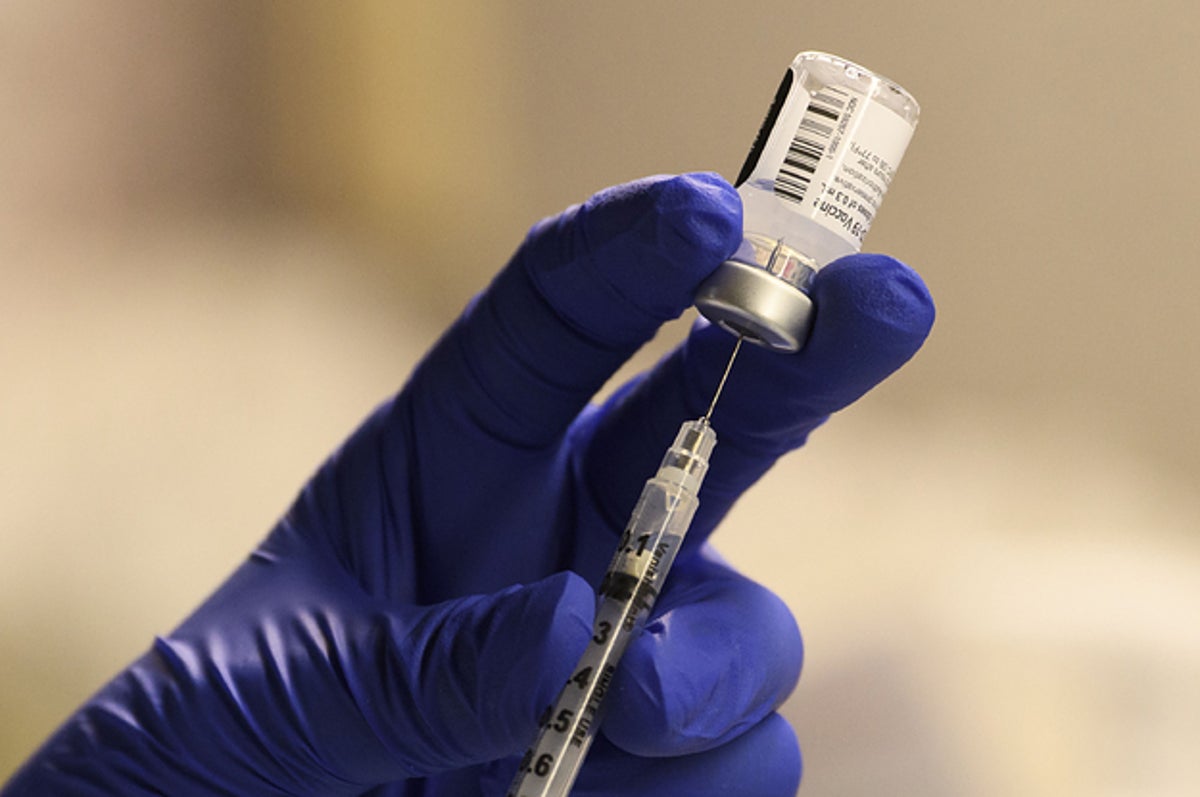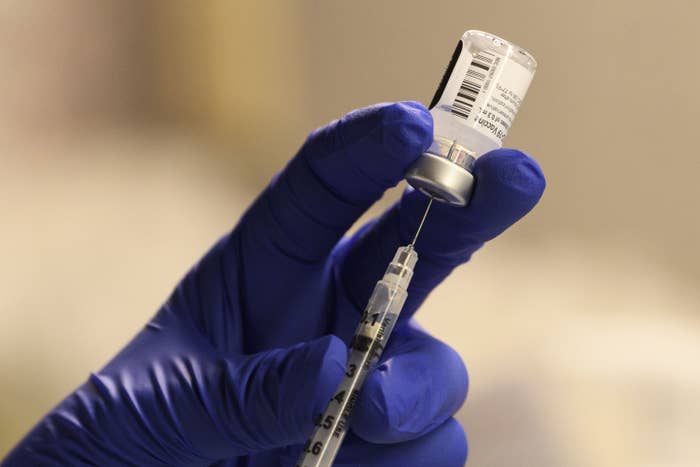
[ad_1]

Patrick T. Fallon / AFP via Getty Images
A CDC expert panel voted 13-1 Sunday to recommend that adults aged 75 and older and frontline essential workers, including teachers and grocery store workers, should be next in line to get vaccinated against the coronavirus.
The CDC Advisory Committee on Immunization Practices (ACIP) also recommended that adults aged 65 to 74, people between the ages of 16 and 64 with high-risk medical conditions, and other essential workers, such as those in construction and the media, be given third priority.
The committee had previously recommended that healthcare workers and nursing home residents be given first priority for vaccines.
Sunday’s recommendation comes days after the Food and Drug Administration (FDA) authorized a second vaccine manufactured by the biotech company Moderna to curb the spread of COVID-19 amid rising cases, hospitalizations, and deaths in the US.
The ACIP recommendations will still need to be approved by CDC Director Robert Redfield in order to become agency guidelines. However, the actual roll out of the vaccines is determined by states and local health authorities.
There are approximately 30 million frontline essential workers, which the committee defines as “workers who are in sectors essential to the functioning of society.”
The group includes first responders, teachers, food and agricultural workers, people who work in manufacturing, corrections workers, US Postal Service employees, public transit workers, and grocery store employees. The committee estimates that there are about 19 million people aged 75 and older included in the second priority group. The third group includes another 129 million people.
It’s unclear when exactly everyone in the second and third groups will be able to get vaccinated. The US expects to have enough doses to inoculate 20 million people in December, 30 million in January, and an additional 50 million people in February, according to Nancy Messonnier, the CDC’s director of the National Center for Immunization and Respiratory Diseases.
“We are faced with the situation, at least in the short term, where we have a limited supply of vaccine available to us,” Messonnier said during Sunday’s meeting. “What that means is that there will be difficult choices about who gets that vaccine first.”
Due to the limited supplies, the ACIP said there might need to be additional prioritization within groups. For example, the panel suggested that frontline essential workers who are at increased risk for severe illness due to their age or underlying health conditions may be given “sub-prioritization.”
[ad_2]
Source link





